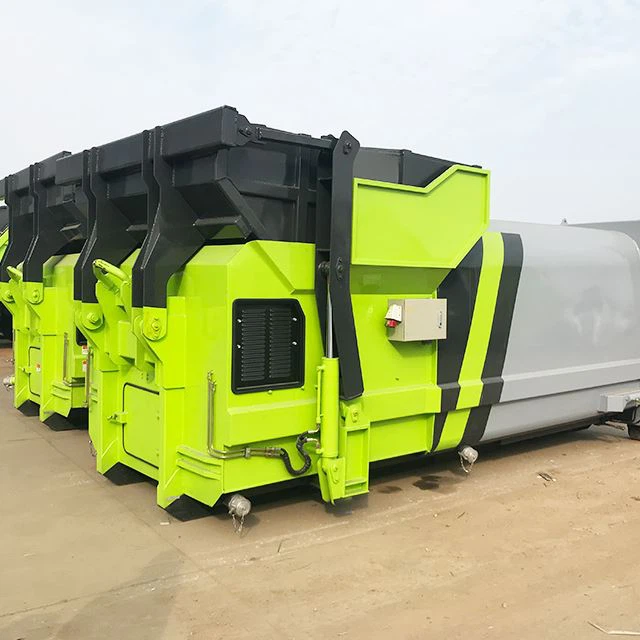Introduction
The fuel tank capacity of a truck is a critical factor that influences its efficiency, range, and overall performance. For truck owners and operators, understanding how much fuel their vehicle can hold is essential for planning trips, managing costs, and ensuring compliance with regulations. This article delves into everything you need to know about truck fuel tank capacities, including factors that affect them, fuel types, and tips for maximizing efficiency.
What is Fuel Tank Capacity?
Defining Fuel Tank Capacity
Fuel tank capacity refers to the total volume of fuel that a truck’s tank can hold, usually measured in gallons or liters. This measurement is crucial for determining how far a truck can travel before needing to refuel.
The Importance of Fuel Tank Capacity
A truck’s fuel tank capacity significantly impacts its operational range, efficiency, and speed. A larger tank allows for longer distances between refueling stops, which is advantageous during long hauls. Conversely, smaller tanks might require more frequent fuel stops, affecting delivery times and costs.
Factors Affecting Fuel Tank Capacity
Truck Type
The type of truck plays a vital role in determining its fuel tank capacity. For instance, pickup trucks typically have smaller tanks compared to heavy-duty commercial trucks. Here are some common truck categories and their typical fuel tank capacities:
| Truck Type | Average Fuel Tank Capacity |
|---|---|
| Pickup Truck | 15 – 35 gallons |
| Light Duty Truck | 26 – 40 gallons |
| Medium Duty Truck | 30 – 60 gallons |
| Heavy Duty Truck | 100 – 300 gallons |
Engine Size and Fuel Efficiency
Generally, trucks with larger engines consume more fuel. A truck’s engine size can influence not only fuel consumption but also the type of fuel tank required. Combining the right engine size with optimal fuel tank capacity ensures efficient fuel use.
Fuel Type
Different trucks use different types of fuel, which influences their fuel tank capacities. For example, diesel trucks typically have larger tanks than gasoline counterparts due to diesel’s higher energy density, meaning a truck can cover more distance using less fuel.
Measurements and Conversion
How Fuel Capacity is Measured
Fuel capacity is usually measured in gallons (US) or liters. For truck operators, being able to convert between these units may be necessary for understanding specifications or communicating with fuel providers.
Gallons to Liters Conversion
1 gallon is approximately 3.78541 liters. Here’s a simple table for quick reference:
| Gallons | Liters |
|---|---|
| 1 | 3.785 |
| 10 | 37.854 |
| 20 | 75.708 |
| 50 | 189.271 |
Practical Examples of Fuel Tank Capacities
Case Study: Long-Distance Hauling Truck
A typical long-distance hauling truck (like a Peterbilt or Kenworth) often comes with a fuel tank capacity averaging 150-200 gallons. If this truck averages 6 miles per gallon, it could travel approximately 900-1200 miles on a full tank. This capacity reduces the number of fueling stops, saving time and money.
Case Study: Delivery Van
A delivery van, such as the Ford Transit, generally has a fuel tank capacity of about 25 gallons. Assuming a fuel efficiency of 15 miles per gallon, this vehicle can expect a range of approximately 375 miles per fill-up, which is generally sufficient for urban delivery routes with frequent stops.
Maximizing Fuel Efficiency
Routine Maintenance
Regular maintenance of the truck, such as oil changes, air filter replacements, and tire rotations, can significantly impact fuel efficiency. Keeping the vehicle in optimal condition ensures that fuel is used effectively.
Driving Habits
Adopting good driving habits can lead to better fuel economy. Techniques such as smooth acceleration, consistent speeds, and avoiding idling can help maximize fuel efficiency.
Regulations and Compliance
State and Federal Regulations
Fuel tank capacities can also impact compliance with various state and federal regulations regarding weight limits and emissions. For example, commercial trucks must comply with regulations that govern fuel tank sizes and placements, affecting overall design and safety standards.
Environmental Considerations
Understanding fuel tank capacity is essential not only for operational efficiency but also for environmental compliance. Larger tanks can sometimes lead to more significant fuel spills if not managed correctly, which can have severe ecological consequences.
Future Trends in Truck Fuel Technology
Electric Trucks
As we move toward a more sustainable future, electric trucks are gaining popularity. While the fuel tank concept changes to a battery pack, understanding truck fuel capacity helps in transitioning from traditional diesel trucks to hybrid or fully electric models.
Alternative Fuels
With increasing attention to sustainability, alternative fuel options like biodiesel, LNG (liquefied natural gas), and hydrogen are being explored, potentially changing fuel tank capacities and designs in the coming years.
Conclusion
Summarizing Key Points
Understanding the fuel tank capacity of a truck is not just about knowing numbers; it’s about efficiency, cost management, and compliance. The truck type, fuel type, and maintenance all play prominent roles in fuel usage and overall operations.
FAQs
1. What is the average fuel tank capacity for a heavy-duty truck?
The average fuel tank capacity for a heavy-duty truck ranges from 100 to 300 gallons, depending on the model and specifications.
2. How can I increase the fuel efficiency of my truck?
To increase fuel efficiency, opt for routine maintenance, adopt better driving habits, and ensure proper tire pressure to reduce resistance.
3. What type of fuel tank is best for long hauls?
For long hauls, a larger fuel tank (like 150-200 gallons) is ideal, as it minimizes the need for frequent stops.
4. Do electric trucks have fuel tanks?
No, electric trucks do not have fuel tanks. Instead, they rely on battery packs to store energy for operation.
5. What regulations govern truck fuel tank capacities?
State and federal regulations dictate safety standards, weight limits, and environmental compliance concerning fuel tank sizes and designs.
6. How does fuel type affect truck performance?
Fuel type affects mileage, energy density, and engine performance. For instance, diesel engines generally provide better torque and fuel efficiency compared to gasoline engines.



